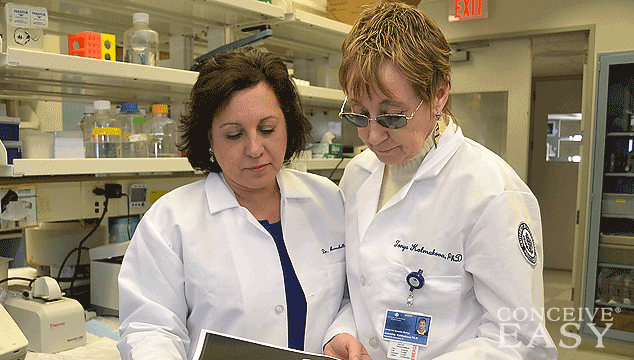![]() The information provided by our expert should not constitute a diagnosis of your condition. Always consult a medical practitioner or healthcare provider for a formal diagnosis. By making use of this content, you agree that ConceiveEasy and the expert assume no liability.
The information provided by our expert should not constitute a diagnosis of your condition. Always consult a medical practitioner or healthcare provider for a formal diagnosis. By making use of this content, you agree that ConceiveEasy and the expert assume no liability.

It’s a huge issue for women in this country. We’re talking about heart disease, of course, and now Uconn health researchers are studying the genetic links between heart disease and infertility in women. This is groundbreaking research that is being performed and it is going to answer a ton of questions about how fertility and matters of the heart are concerned. Claim Your 20 Free Pregnancy Tests – Click Here
Dr. Annabelle Rodriguez-Oquendo is the head researcher. She is a professor of cell biology and the recipient of the Linda and David Roth Chair in Cardiovascular Research.

Dr. Rodriguez-Oquendo has already received a grant to study the role of a genetic mutation that causes heart disease and infertility in women who have extremely high levels of HDL (healthy) cholesterol.
“I was always interested in cholesterol and HDL, how healthy cholesterol can leach cholesterol out of cell walls like a vacuum,”
she says. Dr. Rodriguez-Oquendo is a big supporter of researchers reaching out to the community to explain to them how the highly technical, and sometimes hard to understand research will benefit them in the future. For example, her studies on HDL cholesterol aim to help prevent heart disease in women and also improve a woman’s ability to conceive.

Dr. Rodriguez-Oquendo says that she was very much guided by destiny to Uconn to do this groundbreaking study. She was previously an endocrinology specialist at Johns Hopkins University School Of Medicine, but her research was moving in a different direction, and she says it was time for her to decide where to focus 100 percent of her efforts.
She had met Linda Shapiro, UConn associate professor of cell biology and director of UConn’s Center for Vascular Biology, while they both were reviewing National Institutes of Health (NIH) grant submissions, and she was really drawn to the focus Uconn was putting on their biosciences and genetics research.
Add to that the fact that she had been corresponding with a scientist at the Genomic Institute of Singapore, Yijun Ruan, who was also studying the genetic mutation she discovered. In a crazy twist of fate, Yiun Ruan revealed to her that he had recently joined the The Jackson Laboratory for Genomic Medicine, and would be relocating to the Uconn Health Center’s Farmington Campus.
The stars aligned, and everything pointed Dr. Rodriguez-Oquendo straight to Uconn.
“This was a good match for me for many reasons,”
she says of her decision to come to Connecticut despite other attractive offers.
“Sometimes the universe just lines up for you, and you have to go with it. It’s like floating down a river and you go where the water takes you. I think I was meant to come here.”










Comments